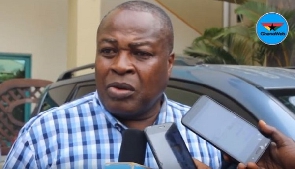Accra, March 20, GNA - Mr Ernest Debrah, Minister of Food and Agriculture, on Monday reiterated the need for African Governments to look at cassava as an industrial product that could earn the Continent a lot of money
"Cassava is a very important agricultural produce in Africa, which needs to be properly advertised to increase its consumption levels among the people," he said at the opening of a three-day Regional Workshop on Cassava Processing and Marketing Initiative in Accra. It is being organised by the International Fund for Agricultural Development (IFAD) for participants from Western and Central Africa to discuss the prospects and constraints of cassava processing and marketing and to join hands in mapping the way forward.
The workshop would identify opportunities for the development of certain cassava products. It would also identify key issues which would need further reflection and research and regional policy issues to be addressed at both national and regional levels.
Mr Debrah said cassava consumption in the Ghana was changing rapidly from 150 tonnes in 2004 to 250 tonnes in 2006 and stressed the need to enhance its processing and marketing to encourage people to shift their taste to cassava.
He announced that Ghana had benefited from 18 million dollars from IFAD to undertake the second phase of Roots and Tuber Improvement and Marketing programme, which was yet to take off and commended IFAD for its commitment to the development of cassava in the West Africa Sub-Region.
The Minister noted with concern that African countries were too slow in implementing decisions and urged the participants to ensure that decisions taken at the end of the workshop were implemented.
Mr Mohamed Beavogui, Director of West and Central Africa Division of IFAD, said acknowledging the critical role of cassava in alleviating rural poverty, IFAD had been investing considerably in the development of the cassava commodity-chain for the past 10 years. He said in the Western and Central Africa region, where some of the largest global cassava producers were located, IFAD had made significant efforts in providing support to the sector by funding national programmes in Benin, Cameroon, Ghana and Nigeria, totalling about 100 million dollars.
Mr Beavogui said the importance of cassava in terms of household food security in the rural areas, especially the rural poor, the gender dimension of cassava production, which sees women taking a leading role in the processing and marketing activities, formed part of their main focus on the cassava sector.
He said cassava was strategic for future generations of Western and Central Africa, adding that with increasing urbanisation rates in the region, cassava products could offer a response to the growing demand for food, which otherwise, would have had to be imported. He said apart from processing cassava into gari for local consumption other opportunities also existed for the development of high quality cassava flour, supply chains for starch, ethanol and animal feed industries.
Mr Beavogui expressed the hope that the participants would be able to establish action plans for cassava processing and marketing at the regional level. 20 March 06
Click to view details



Business News of Monday, 20 March 2006
Source: GNA
















